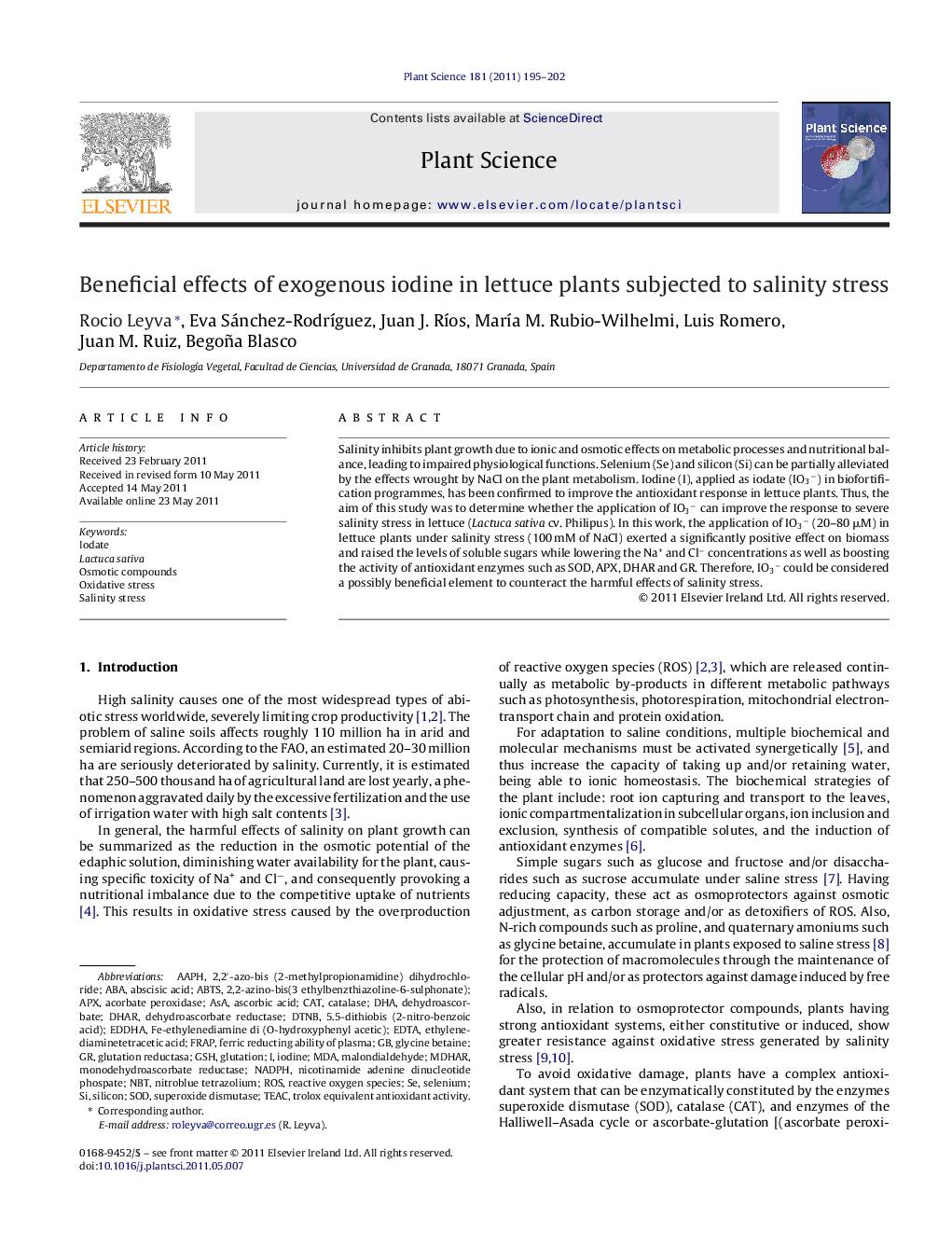| Article ID | Journal | Published Year | Pages | File Type |
|---|---|---|---|---|
| 2017508 | Plant Science | 2011 | 8 Pages |
Salinity inhibits plant growth due to ionic and osmotic effects on metabolic processes and nutritional balance, leading to impaired physiological functions. Selenium (Se) and silicon (Si) can be partially alleviated by the effects wrought by NaCl on the plant metabolism. Iodine (I), applied as iodate (IO3−) in biofortification programmes, has been confirmed to improve the antioxidant response in lettuce plants. Thus, the aim of this study was to determine whether the application of IO3− can improve the response to severe salinity stress in lettuce (Lactuca sativa cv. Philipus). In this work, the application of IO3− (20–80 μM) in lettuce plants under salinity stress (100 mM of NaCl) exerted a significantly positive effect on biomass and raised the levels of soluble sugars while lowering the Na+ and Cl− concentrations as well as boosting the activity of antioxidant enzymes such as SOD, APX, DHAR and GR. Therefore, IO3− could be considered a possibly beneficial element to counteract the harmful effects of salinity stress.
► IO3− reduces the ionic, osmotic and oxidative damage generated by salinity. ► IO3− decreases toxic ion concentrations and increases soluble sugars concentration. ► Also activates antioxidant enzymes such as SOD, APX, DHAR and GR. ► Thus ROS such as O2− and H2O2 reach minimum levels in NaCl-stressed plants. ► IO3− can be considered a beneficial element against salinity stress.
